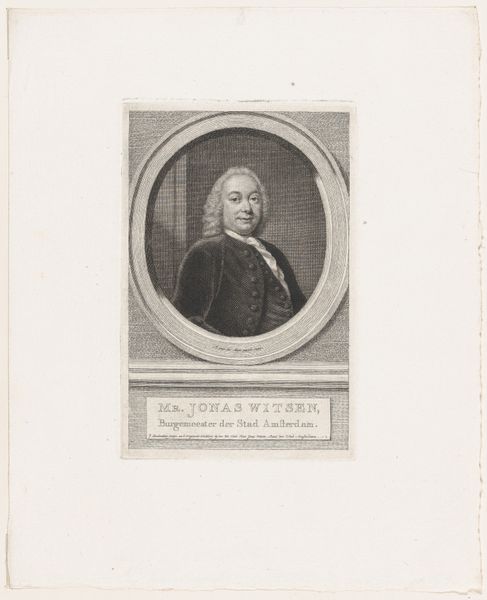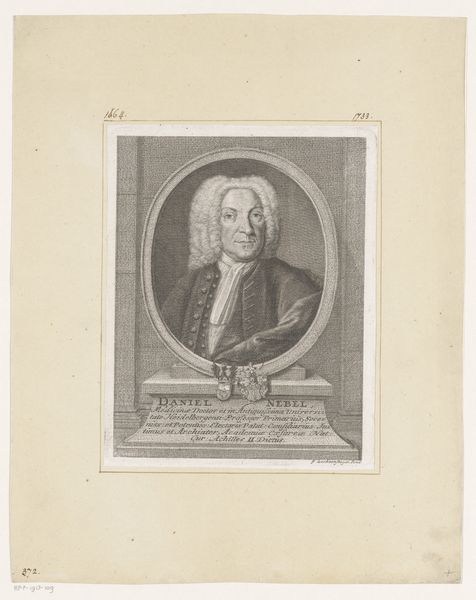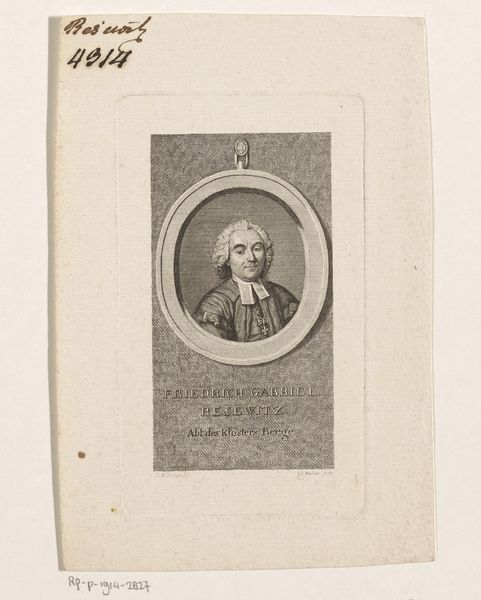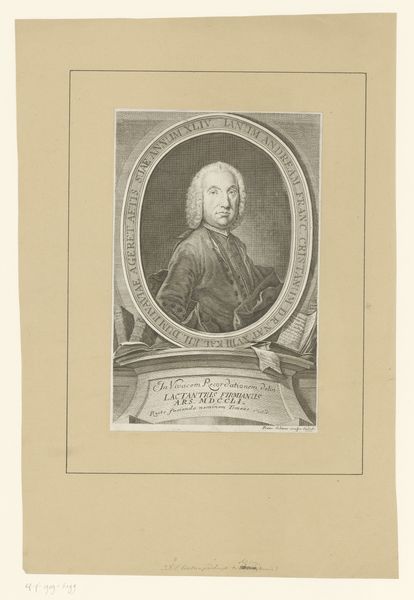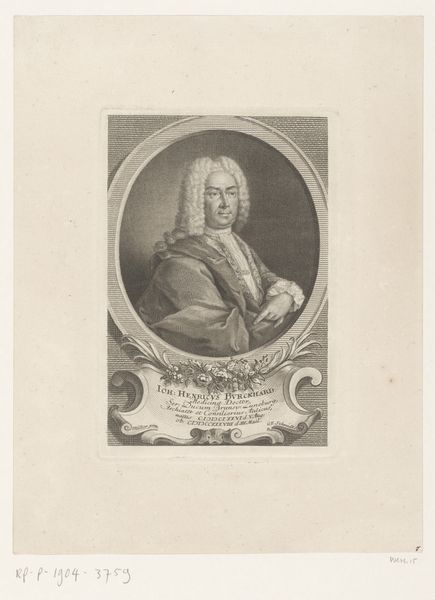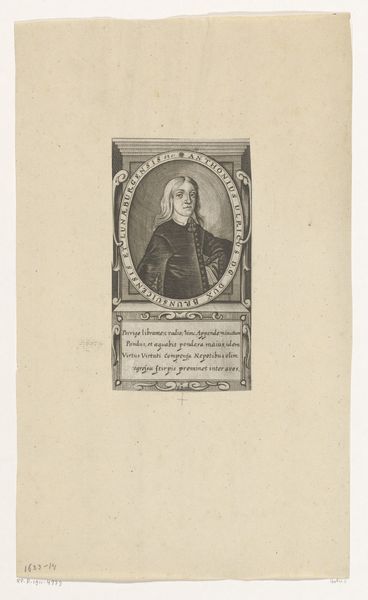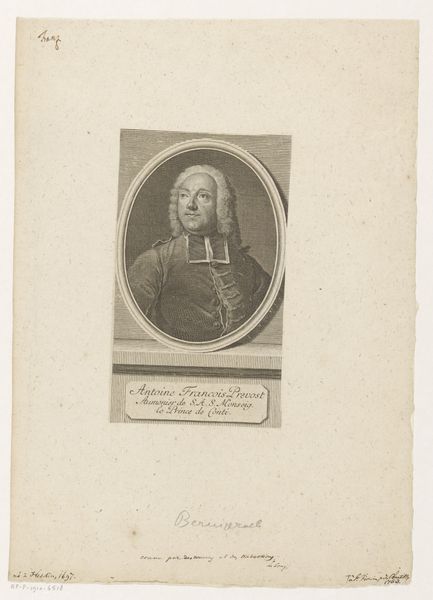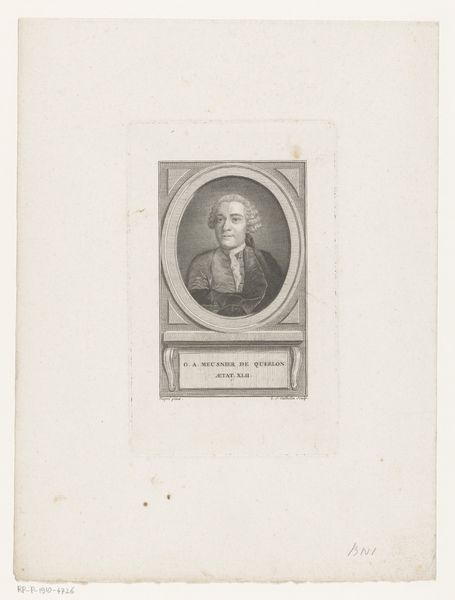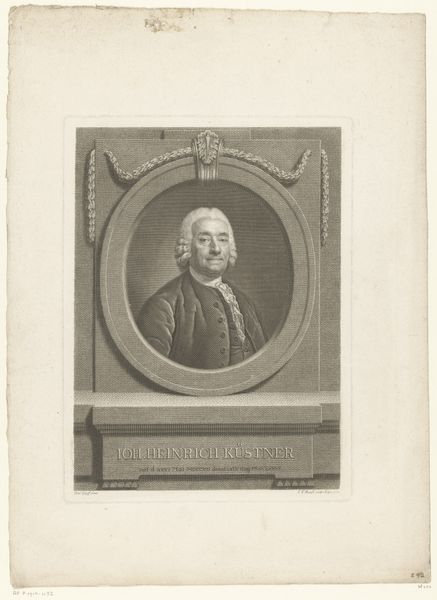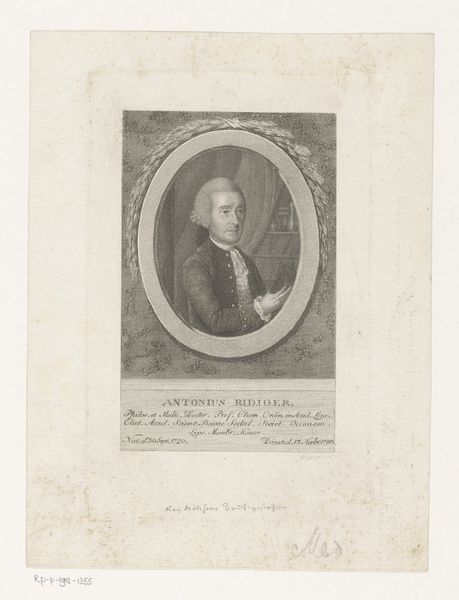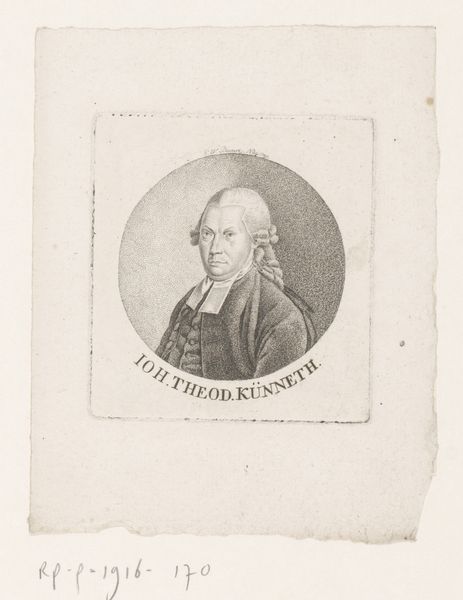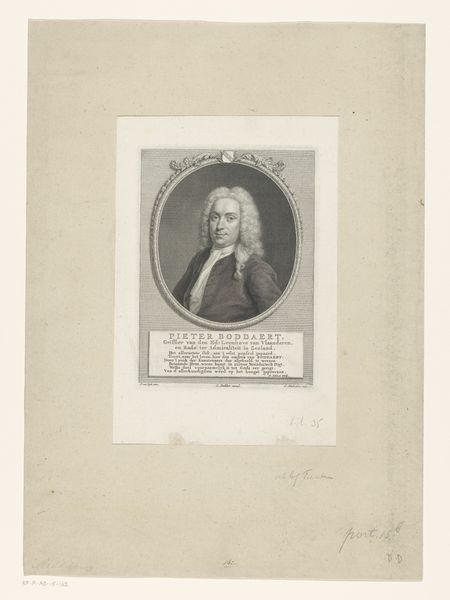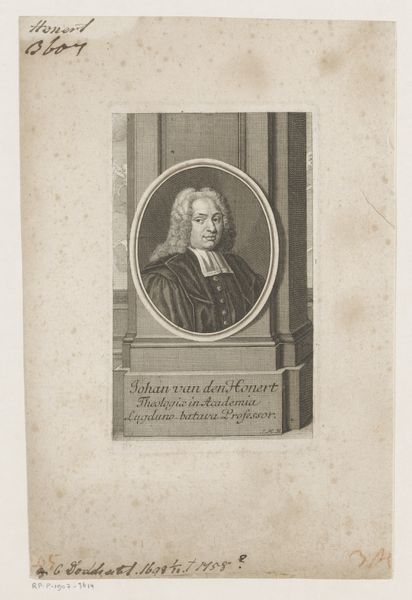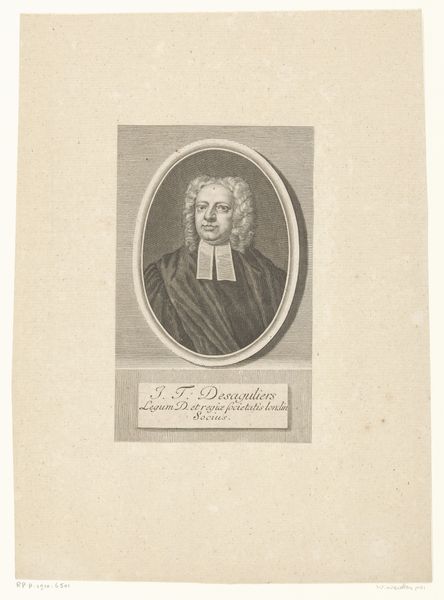
engraving
#
portrait
#
neoclacissism
#
old engraving style
#
history-painting
#
academic-art
#
engraving
Dimensions: height 160 mm, width 103 mm
Copyright: Rijks Museum: Open Domain
Curator: This engraving from somewhere around 1800-1810 by Gotthelf Wilhelm Weise, titled “Portret van Christoph Eusebius Raschig,” presents its subject in a very particular way. Editor: It feels formal, reserved almost. The pale face framed by the elaborate wig… there’s a certain severity to it, despite the somewhat gentle gaze. It's rendered very delicately in shades of grey. Curator: Indeed. It's an engraving, so think of the artisan meticulously carving into a metal plate, transferring the image, and then printing it. Each line has to be exact, a conscious decision of material process for production and representation. Weise was a master of academic art, which is really evidenced by the smoothness of form, with minute details indicating this man's status. Editor: That inscription “C.E.RASCHIG" below the portrait grounds him literally and metaphorically. The portrait is not merely an image; it signifies historical and personal presence. It's almost an epitaph to the person's status or reputation at that time. Curator: Notice how the oval border around his portrait also echoes the neoclassical emphasis on symmetry and balance, which demanded intense labor. Its classical allusion further suggests a conscious attempt to align Raschig with a specific intellectual and cultural lineage. And consider the socio-economic factors: who could afford such a carefully crafted object? This was a time of intense trade and manufacturing development! Editor: I agree. These formal elements solidify the visual memory surrounding this individual. That’s a man trying to tell you how he wants to be seen for all time! And of course, portraiture as a genre inherently suggests that sort of immortality. I see layers here, of meaning and method, history and artistry all wrapped together. Curator: Ultimately, the object represents material labor meeting ideal representation to reflect wealth and class at the height of mercantile society, offering both the subject and us much to reflect on. Editor: Absolutely, I find the conversation it proposes even more compelling now.
Comments
No comments
Be the first to comment and join the conversation on the ultimate creative platform.
